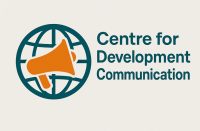NGOs Are Getting Communication Wrong — Here’s Why It Matters
One of the greatest challenges facing many NGOs today is that they rarely hire professionals trained in development communication. The focus is often placed on publicity and public relations, rather than on the deeper, more transformative role of communication in development. As a result, communication is reduced to managing social media accounts, issuing press releases, […]
NGOs Are Getting Communication Wrong — Here’s Why It Matters Read More »

